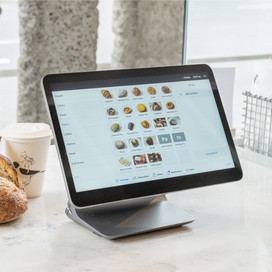Table of contents
Many people dream of starting their own business, and while taking the plunge can be challenging, it can also be worth it. In Australia, there are almost 2.5 million businesses registered and this figure is increasing by up to 2% every year.
Whether it’s going out on your own as a builder or accountant rather than working for big corporations or starting a small DIY craft business that allows you to turn a hobby into a money-maker, there are many advantages to starting a business from scratch. The following guide looks at the pros and cons of starting a business, and also gives you insight into how Square can help you turn your business into a success.
Advantages of owning a business
One of the most common reasons people start their own business is so you can have some independence and security You no longer have to work for someone else, so there’s no pressure to impress and you can’t get the sack. You also have full control over your income, outgoings and debt. That’s not all though, and there are many other benefits of owning your own business, including the following:
1. Lifestyle
You can choose your own work hours, have holidays any time you like (hopefully), and be home for your family when you need to be. If you want to spend more time at the beach and less time behind a computer, you can. And given that today it’s possible to do almost anything from a distance, you can travel anywhere in the world and still work, without having to report to anyone.
2. Financial
If you’ve spent the past 10 years working for a corporation, you can rest assured that the company is gaining the benefits and keeping the profits. Rather than working to feed someone else’s family, going out on your own allows you to reap the rewards yourself. Starting your own business gives you the flexibility to charge what you think you’re worth. This is particularly the case for service providers.
3. Learning new roles
Working for other companies generally gives you one title, however when you work for yourself, you can wear many different hats. This is a fantastic opportunity to learn new skills as you’ll need to be involved in all aspects of the business moving forward.
4. Job satisfaction
One of the main reasons people start their own business is so that they can do a job they enjoy. Whether that’s spending hours a day doing crafts or cooking treats to sell online, or starting a work-from-home bookkeeping business, you can use the skills you have already and know you’re doing something you enjoy (without anyone else reaping the rewards of your hard work).
5. You choose who you work with
Aside from having a job you enjoy, you can also choose who you want to work with. You can control the hiring of your team and develop the kind of company culture you’d like to emulate. . Owning the business gives you the chance to ensure the people who work for you are as passionate about your business as you are.
Disadvantages of owning a business
However, where there are pros, there are cons, and owning your own business does come with some challenges. In fact, 95% of startups fail and it’s not for lack of trying, but often because business owners aren’t prepared. Here are a few cons to keep an eye on – and ways you can get past them.
1. Financial risks
Depending on the type of business you’re creating, you generally need to spend money to make money – and in the beginning, you may find you’re spending more. If you don’t keep on top of your finances, you may end up in debt that you can’t afford to pay off. This is just one reason why it’s essential you have a business plan in place before operating.
Tip: A business plan will include your startup costs – a list of everything you need to buy or invest in (including your digital marketing or online store), so you can budget accordingly.
2. Stress & health issues
It’s not an easy transition moving from working for someone else to working for yourself. There’s a lot you need to consider, from finances to employees, competition to customer satisfaction. You’re responsible for everyone, and every aspect of the business. You could end up working very long hours, with little down time. And you’ll be responsible for ensuring customers and workers are safe and happy as well. All of this can take its toll on your mental stress and physical health.
Tip: Try to remember to take a little downtime, outsource as much of the work as possible, and switch off your technology/ emails at night.
3. Time commitment
If you don’t have any time to spare, you shouldn’t start your own business. There’s no getting around it – it’s time consuming. And the amount of time you spend on your business can be reflective of how successful you want your business to be. Although the idea of freedom and lifestyle is great, you also need to work hard to get to that point. In the start, many business owners work more than 40 hours a week. And taking a vacation can seem like a pipe dream.
Tip: Remember that even though setting up your business will take a lot of your time, the rewards will pay off down the track.
4. Numerous roles, whether you like it or not
As the business owner, initially you’ll need to take on numerous roles. You’ll be the manager, the employee, the accountant, the marketer, customer service, and much more. Doing all the work yourself will add to your stress levels and increase the hours you work; however it all needs to be done.
Tip: As soon as you have the finances to do so, outsource any work you prefer not to do yourself, such as bookkeeping; and invest in the right software to make your processes easier, such as POS systems.
How Square can help start and grow your business
Now that you’re aware of starting a business from scratch advantages and disadvantages, it’s time to get started. As mentioned earlier, you should always start with a business plan which can define what you want to achieve, what you are offering, who your audience is, how you’re going to market your products or services, and your start-up budget and financial goals.
Next, register your business for an ABN with the Australian Business Register, or with the Australian Securities and Investments Commission (ASIC) as a company. Make sure you do all the relevant research on laws, restrictions, certifications, insurances and permits for the type of business you’re planning; and set up a marketing plan so you can get started.
If you want further advice, Square provides a number of resources for Getting Started. But we do more than that. Square also offers a range of tools designed to make your business life easier:
1. POS hardware
Designed and built by Square, we provide payment gateways that give your customers easy payment methods, including Square Terminal, Square Register, Square Stand and Square Reader.
2. Payment options
Square also offers online payment gateways, allowing customers to make remote payments (as you invoice digitally), take payments over the phone as you key in card information directly into the app or website. There’s even the option to open a Square free online store that links directly with our online payment services.
Check out the full range of options available online so you can focus on what matters most – getting your business up and running.
![]()











